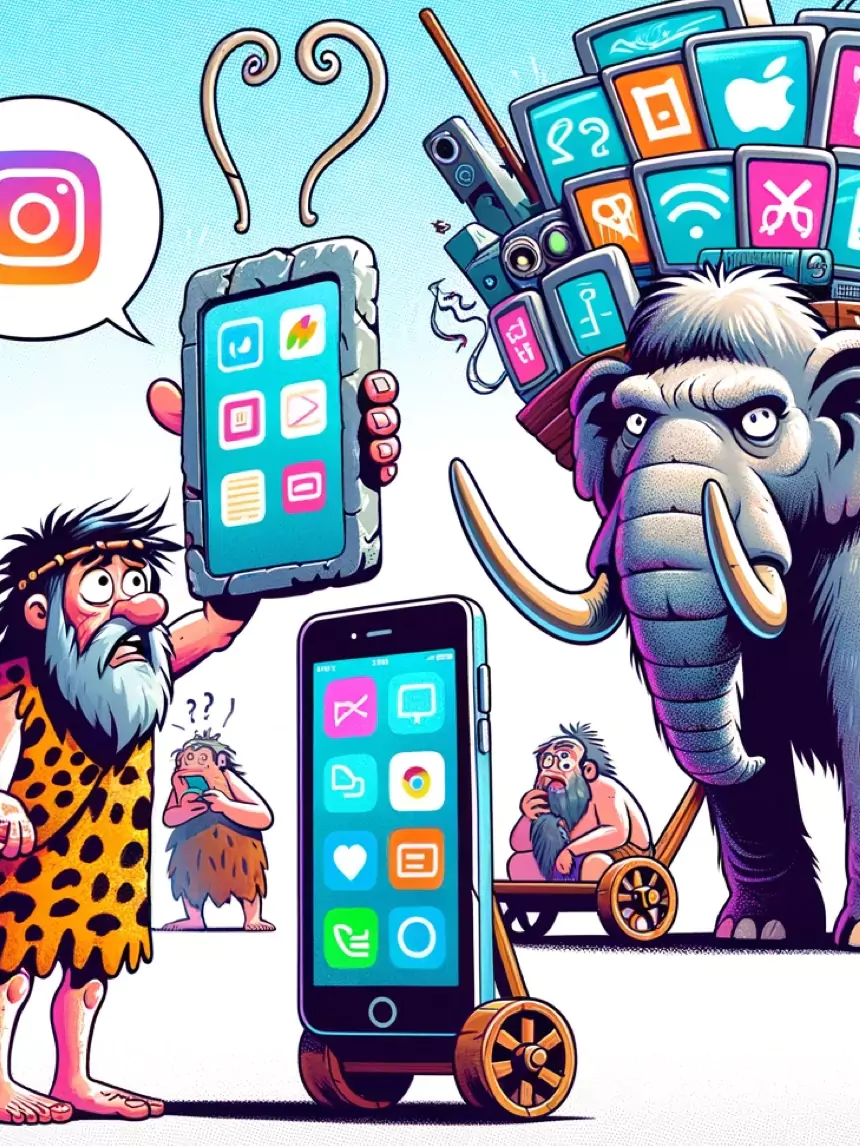Co-Founder Taliferro
Keeping up with technology isn't just about staying current; it's about staying competitive. Yet, amidst the hustle and bustle of daily operations, it's surprisingly easy for businesses to fall behind, tech-wise. Before you know it, you're not just lagging; you're practically prehistoric. Here are five shocking signs that your business technology might be stuck in the Stone Age, along with some anecdotes and tips to help you catapult into the present.
Your "High-Speed" Internet Isn't High Speed Anymore
Remember when dial-up was a thing? If your internet speed feels reminiscent of those days, it's a clear sign you're behind the times. High-speed internet is the lifeline of any modern business, supporting everything from cloud-based services to daily communications.
I once visited a client whose internet was so slow, I could make a coffee in the time it took a page to load. They thought it was normal until we upgraded their connection. The look on their faces when they experienced true high-speed internet was like watching someone discover fire for the first time.


Your Software Has "Retired" More Times Than Your Employees
If the software you rely on is no longer supported by its developers, you're not just working with outdated tools; you're risking your business security and efficiency. Unsupported software doesn't receive updates, making it vulnerable to security breaches and compatibility issues.
A business I know clung to an ancient customer management system because "it still works fine." That was until a security breach cost them thousands and exposed sensitive data. The painful upgrade process afterward was a harsh reminder that sometimes, change is necessary.
Your Data Backup Strategy Involves Physical File Cabinets
While there's something nostalgically secure about physical files, relying solely on paper documents or even local digital backups is risky. Modern businesses use cloud-based solutions for data backup and recovery, ensuring data integrity and availability, even in disaster scenarios.
After a small flood, a friend's business lost years of paper records stored in their basement. The loss was devastating. Switching to cloud-based backups was a revelation for them, offering peace of mind and much-needed security.
Mobile Optimization? What's That?
If your website isn't optimized for mobile devices, you're not just missing out on traffic; you're telling the world you're stuck in the past. With the majority of web browsing done on mobile devices, a non-mobile-friendly site is a glaring sign you need to update.
I once tried to access a supplier's website on my phone, and it was like trying to read a map through a keyhole. They updated their site to be mobile-friendly, and their online orders saw an immediate uptick. Sometimes, the fix is simple, but its impact is monumental.
You're Still Rocking the Fax Machine
Sure, there's a charm to old-school tech, but if a fax machine is still your go-to for document sharing, it's time to step into the present. Digital document sharing is not only faster and more efficient but also more secure.
A colleague used to send faxes daily until we introduced them to digital document sharing. The transition was a game-changer, reducing their document processing time by over 50%. They jokingly mourned the fax machine but didn't miss it.
Conclusion
Realizing your business technology might be a bit prehistoric isn't a bad thing. It's the first step towards making necessary changes. Upgrading your technology not only improves security and efficiency but can also enhance your team's morale and productivity. Remember, the goal isn't just to catch up to the present; it's to prepare for the future. With a proactive approach to technology, you can ensure your business thrives in the digital age, leaving the Stone Age where it belongs—in history.
Tyrone Showers
